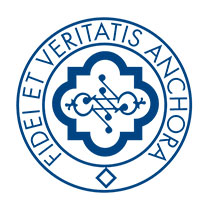Subject and regulation of the cohabitation agreement. What is it?
The proposal establishes the “cohabitation agreement”: a contract available freely to anyone to use in consciously planning their cohabitation arrangements, should they opt for a form of domestic partnership other than marriage.
Central to the proposal, then, is the contract, based on the free will of the parties, that regulates the property aspects of a life in common. The proposal, however, does not automatically recognise any rights and duties arising out of a de facto arrangement such as a simple “de facto relationship” or cohabitation.
In the cohabitation agreement, the parties may regulate:
- arrangements for funding the necessities of life in common;
- sharing of ownership of goods purchased for consideration by just one of the partners;
- the partners’ rights and obligations of a financial nature in case of dissolution of the cohabitation agreement;
- the possibility of leaving one’s de facto partner a share of one’s inheritance that does not exceed the portion available (overriding the prohibition on agreements as to succession), provided that the death of the party takes place after at least nine years of living together.
The agreement can also provide for rights and duties of assistance, information and measures concerning health and prison, with the possibility of entrusting to the partner, in the event of one’s mental incapacity, decisions relating to health, treatment of the body, funerals and organ donation.
The agreement must be formalised as a public deed before a notary on pain of nullity. The notary will enter the deed in the unified national register of cohabitation agreements established by the National Council of Notaries.
Purpose of the proposal. What are the benefits?
The debate on “cohabitation agreements” has so far not made adequate legislative headway in Italy due to the lack of singularity of purpose, due mainly to the co-existence in our country of different traditions, cultures and ideologies which aim for very different arrangements of society and the state, often conflicting with the Catholic soul of the great majority of Italians.
The Notariat’s proposal does not envisage “purely and simply” expanding the concept of the family based on marriage between a man and woman to embrace other forms of cohabitation that, in fact, may contradict the spirit and substance of marriage, but proposes solutions adapted to the new requirements of society.
In an advanced liberal democracy, respectful of all feelings and cultures and in step with the times, we must recognise citizens’ right to choose, in organising their lives, among:
a) marriage (civil and/or religious) with its mandatory public law rules;
b) a cohabitation agreement freely regulated and signed, with the expectation of rights and duties, some of which cannot be set aside;
c) simple de facto cohabitation, from which no reciprocal right or obligation may arise, this not being the partners’ wish, as evidenced by their not signing a formal agreement.
Otherwise, to derive legal effect under the law from a simple practical behaviour such as cohabitation would not only jeopardise the rights and interests of third parties but would violate, through an excess of protection, the right of the individual to organise his or her life in a manner completely free and unconstrained – to the extent that it does not exceed the sphere of relations between the parties and does not offend against public order and morality – by rules imposed from above.






